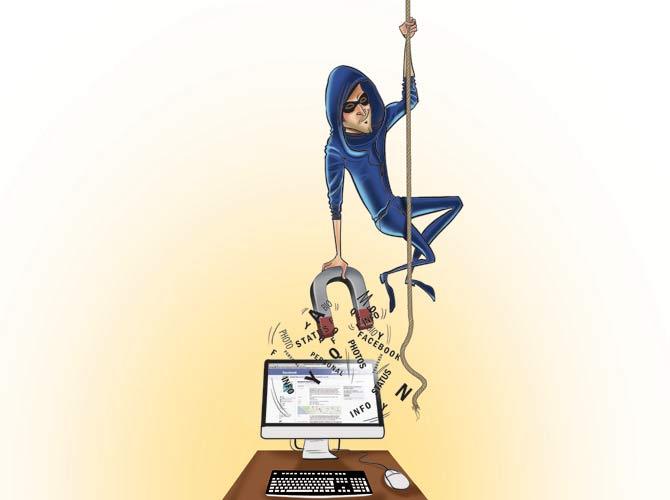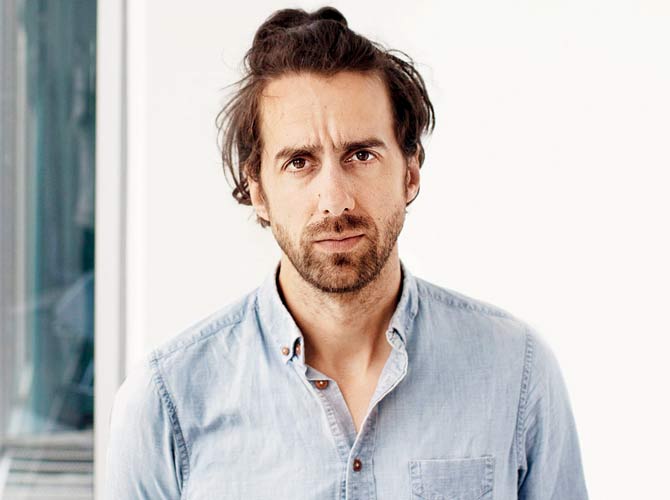In a new book, Jamie Bartlett, whose docu showing Congress party's poster in Cambridge Analytica's boss' office went viral, reveals why we need to up user protection on the Internet


Illustration/Uday Mohite
ADVERTISEMENT
Just two weeks ago, a website's personality tests were being widely circulated on the Internet, and lauded for its "freakishly accurate" results by those who'd taken it. The results validated that the Artificial Intelligence at play - it incorporates "psychometric research and robust testing techniques"- was far more precise than any psychologist or mind reader, ever known. And, all it took were a series of choice-based questions that demanded only 12 minutes of your time and - the best bit - no money, of course.

Jamie Bartlett
Yet, when you leaf through London-based tech blogger Jamie Bartlett's book, The People Vs Tech (Penguin Random House), you realise the many ways in which this test can be hijacked by political parties and advertisers for purposes we have all become only recently aware of, thanks to the Cambridge Analytica-Facebook scandal. "I wrote this book to shock people," admits Bartlett, the director of the Centre for the Analysis of Social Media for think-tank Demos in the UK, leaving no room of doubt about his intention. That he began writing it seven months ago - long before the scandal broke out - might probably make him a foreseer of sorts. "I got lucky with the timing [of the book]," he says in a telephonic interview. "...Although, now I am really thinking, if it was luck or sound judgement." His new book points out to the latter.
In The People Vs Tech, Bartlett, who has previously authored the bestseller The Dark Net, presents a must-have guide for citizens of the world on how the Internet is killing democracy. With examples and alarming case studies, he reveals how the concentration of power, data and control over the public space is already affecting our everyday lives, and what we can do about it, before it's too late. The Cambridge Analytica-Facebook scandal is only the tip of the ice-berg.
Private, no more
Social media platforms, he writes, are the "latest iteration of the behaviourist desire to manage society through scientific observation of the mind, via a complete information loop: testing products on people, getting feedback and redesigning the model". Another word for this idea, he says, is what Israeli historian Yuval Noah Harari calls 'dataism' - positing that mathematical laws of data apply to humans as well as machines. Here, he explains how the untold hours you've spent on social media, are enough to fill several binders like interests, age, friends, job, activity, for the social media platform. "Facebook has partnerships with quietly powerful 'data brokers' like Acxiom, which has information on over 500 million active consumers worldwide, with thousands of data points per person: things like age, race, sex, weight, height, marital status, education level, politics, buying habits, health worries and holidays, often scooped up from other shops and records," he writes. By 2020, he predicts, there will be around "50 billion Internet-enabled devices - four times what there are now - and each one hoovering up data".
This means that it is no longer possible to be on social media without having to compromise one's data or privacy. "At least, not really on the big ones," says Bartlett. "You can obviously take measures to increase protection using the privacy settings, so that it's harder for third parties to access your information. But, as we all know, it's very, very hard to use the larger social media platforms, without giving away at least something. There are, of course, smaller platforms that are built differently that don't give away personal information. But, they are all very small, and not as good, convenient or reliable."
Not all is lost, however. "I don't think it's too late [to address the issue], but I do think it's very, very urgent now. The speed with which these technologies are intruding, only means things are speeding up. And, if we don't act quickly, it will become too late." Over the last week, Bartlett has also ruffled a few feathers closer home, especially the Indian National Congress party, after footage of his BBC documentary interviewing Cambridge Analytica boss Alexander Nix in his office, went viral. In the video, which the author also shared with us, a framed poster of the Congress is seen in Nix's office.
Even as rival parties targeted the Congress for their alleged links with Analytica, which is currently facing heat for harvesting Facebook data for Donald Trump's 2016 US elections, Congress denied any involvement with the firm, and alleged that Bartlett had "photoshopped" the footage. "Why would I undermine the Congress party?" Bartlett asks. "I double and triple-checked the footage, and I clearly remember seeing it. If you put those two things together, there is a strong possibility [of Congress reaching out to Analytica for data]. Why else would Nix have a poster of the party? Either he is a supporter or the company has worked with them at some point. But, I can't say for sure."
Employ self-control
Irrespective of data breach or not, Bartlett says the Internet is working its way at destroying democracy. "It's like a slowly-unfolding car crash. Democracy is being pulled apart thread by thread, and it's becoming increasingly very hard to notice." If the issue isn't addressed immediately, it's likely that democracy would be in grave danger in the next 15 years, he adds.
As a starting point, Bartlett suggests that users employ self-control. He explains how Facebook's "autoplay, endless scroll and reverse chronological timelines are all sculpted to keep your attention". "Hordes of us are now members of a zombie army that walks while looking down at our phones and chats to distant disembodied avatars rather than whoever is sitting next to us," he writes in the book. "The tech giants spend millions of dollars to keep users addicted to the Internet," he says, while pointing out why we have failed to become vocal citizens. "Plan your personal time and space carefully, and the relentless, frenetic nature of life online – at the cost of your powers of concentration and focus. Have switch-off times, avoid the 'checking cycle' and never, never hit refresh," he suggests. Governments, on the other hand, he says should come up with definite laws to counter the unchecked growth of these technological giants. They need to show them who is boss, he says.
The Electoral Commission, for instance, must insist that all social media spending by political parties be recorded and shared transparently - and be prepared to investigate any misuse of personal data or spending irregularities. "At one point the tech firms seemed so harmless. They were young, cool, socially very progressive and nobody ever imagined they could have such an impact on democracy. But, the transformation was so dramatic and sudden, that we all sleep-walked into this."
Also Read: Two Mumbai families take up Sunday mid-day's challenge to go plastic-free for two weeks
Catch up on all the latest Mumbai news, crime news, current affairs, and also a complete guide on Mumbai from food to things to do and events across the city here. Also download the new mid-day Android and iOS apps to get latest updates
 Subscribe today by clicking the link and stay updated with the latest news!" Click here!
Subscribe today by clicking the link and stay updated with the latest news!" Click here!






